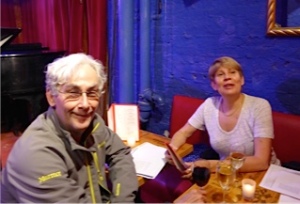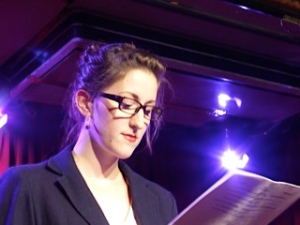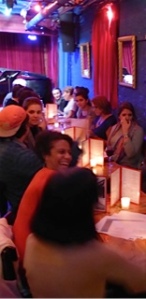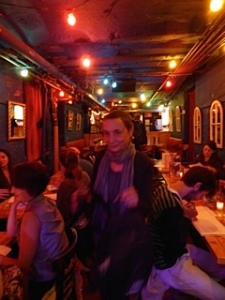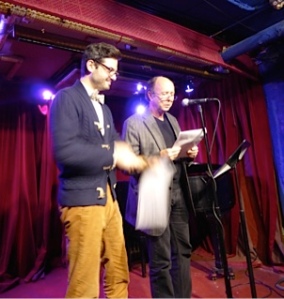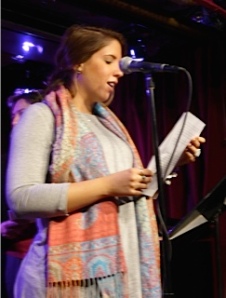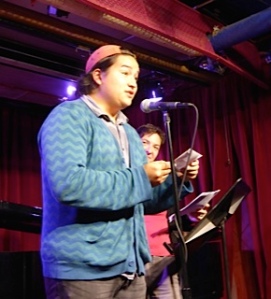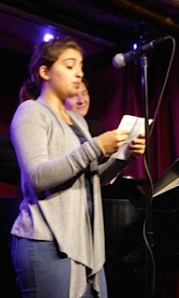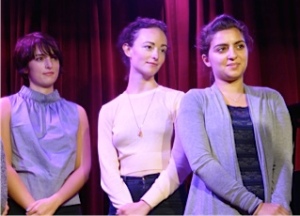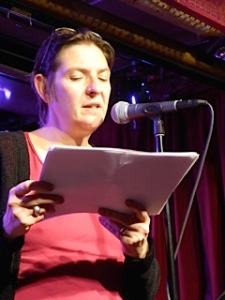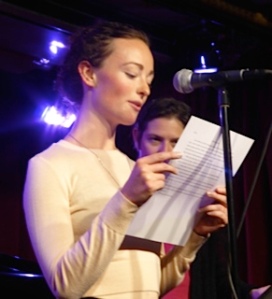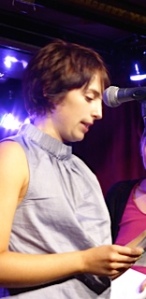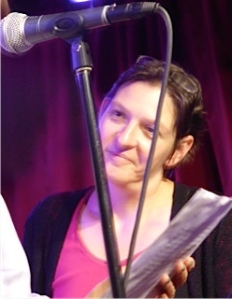A translator will have to face a myriad of philosophical problems throughout the course of his or her translation, not the least of which concerns itself with authorial intent. What does this story mean to the author? What did the author want to do for the reader? And does it matter? It’s certainly a translation nonetheless if the translator works exclusively with the text and its language, but how much more richer would that same text be if the author his or herself were studied just as extensively? These questions take on another fascinating turn if we look at the life and work of Marguerite Duras, who’d said, “L’histoire de ma vie, de votre vie, elle n’existe pas, ou bien alors il s’agit de lexicologie. Le roman de ma vie, de nos vies, oui, mais pas l’histoire.” (The story of my life, of your life, doesn’t exist, or only perhaps as a study of words. The novel of my life, of our lives exists, yes, but not the life itself.”) La Maison Française at NYU, in honor of her centennial, has presented now two biographers, Laure Alder (Marguerite Duras) and Jean Vallier (C’était Marguerite Duras) with a third to appear in December (Camille Laurens). What the biographers have discussed presents some interesting perspectives on authorial intent as well as, of course, Duras herself.
The body of Duras’ work drew inspiration from her own life, something that we might loosely describe as autofiction, which has encouraged scholars to look to her novels for biographical clues. Vallier emphasized that she wrote to discover who she was; to relive and situate her experiences. But as she remembered, she also disremembered (as do we all) and reimagined, essentially altering her life stories to better illustrate desire. True to the term, the heroines of her novels are not strictly herself, but a fictionalized version of herself. And given this, attempting to understand her intentions by means of a biography would be counterproductive. Vallier ended his presentation speculating that many biographical “facts” were compromised so that the deeper, more emotional realities could be conveyed (they being at once what really happened, the memory of what happened, what could have happened instead… for what is felt is comprised of both the lived and unlived.)
Time and time again, when asked to explain her novels, Duras would say “It’s in the text.” “It” may not represent a biographical truth, despite how heavily her novels drew from her own life, but “it” represents a creative interpretation of that life. “It” is successful as a world of its own that doesn’t need the benevolent presence of another to explain it. The text itself should be the first place a translator goes for answers.
But let us say “texts” rather than “text,” for a translator would do well to understand the tropes that would appear over the course of her work, the reappearing characters, and most importantly, her style. Alder mentioned that her reading public was struck by her narrative voice; it was a voice familiar yet foreign grâce à the influence that Vietnamese had upon her French. As translators, we’re challenged first and foremost by the language, and in this instance, by the melding of two wildly disparate literary traditions (French and Vietnamese). Immersing yourself in the texts some gives way to the languages that compose it: her style, French literary style and Vietnamese literary style, asking au fond an understanding of these languages and how they work together.
Laure Adler was fortunate to know Marguerite Duras, and I was struck how differently Adler spoke of her as opposed to Vallier’s presentation. Where Vallier focused on her biography in a very American way (records, data, exhaustively) Adler wove in the emotional landscape, major events (whether real or exaggerated) and literary influences that contributed to her style. As a translator I found Adler’s presentation more useful, for she described Duras’ creative process as well as those other authors who would inspire her own writing. I was more interested to learn, for example, that she read and reread Joseph Conrad (Heart of Darkness; Lord Jim) late into her old age, that she enjoyed T.S. Eliot and the works of infamous navel officer Pierre Loti.
Duras’ principle translator Barbara Bray had the good fortune of being her friend as well as her champion in Anglo literary circles. Their relationship exemplifies an ideal in the translator-author relationship: Bray believed in the power of Duras’ work and was struck by the language. She went on to translate the bulk of Duras’ work, in prime position to observe the evolution of Duras and her writing. For this, English-speaking readers have access to some exceptionally beautiful translations of Duras’ work. Missing from the list of translations, lamented Vallier, is one of Duras’ first novels, La Vie Tranquille. I was shocked to learn that Écrire (1993) and C’est tout (1995) remain untranslated as well.
Bray, who passed away in 2010, left us hard act to follow.
Vallier and Adler emphasized her enigmatic personality, and the overwhelming scope of her work… perhaps as a writer who lived by means of her novels; perhaps as a writer whose mind was never silent. Vallier encouraged readers to play close attention to nature’s presence in her novels, and Adler emphasized how vividly Duras’ characters came to her. While its perhaps impossible to decipher, as a psychologist would decipher, the “authorial intent” or “significance” behind her novels, a translator’s research should nevertheless immerse the his or herself in a body of text and the effect it has on the language. (Gauged by conversation with readers? Contextualized by public response?) Duras is an author that left a considerable impact upon the literary landscape, and regardless of her intent, the repercussions of her prose is something that readers can discover personally.
Vallier’s presentation wasn’t the last of them! Camille Laurens will be by La Maison Française on December 10th to round out the Marguerite Duras Centennial Lectures.

